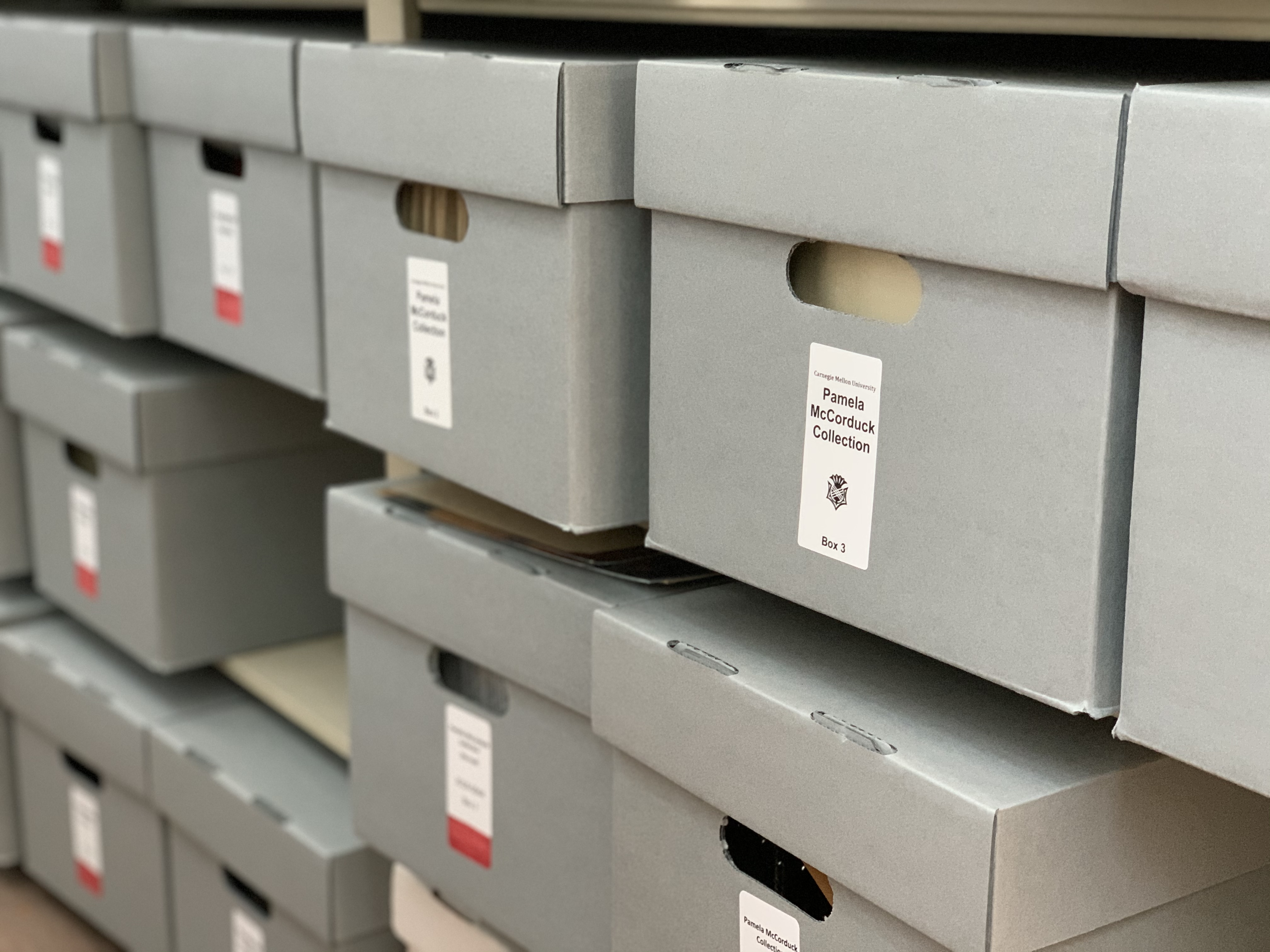
The University Archives acted as a key resource for producers of the '99% Invisible podcast,' who reached out for materials to create their recent episode about the early days of AI.
'99% Invisible,' which focuses on the ways that architecture and design shape our world, is one of the most popular podcasts on iTunes with over 250 million downloads. The December 10, 2019 episode, titled 'The ELIZA Effect,' focuses on early AI history and computer scientist Joseph Weizenbaum. His ELIZA chatbot was one of the first computer programs that could convincingly simulate human conversation.
Weizenbaum, who had concerns about the use of chatbots and the nascent field of artificial intelligence, went on to eventually become one the first critics of the very technology he helped to build.
A Senior Editor at '99% Invisible' who had read Pamela McCorduck's Book 'Machines Who Think' reached out to the Archives in June 2019 in search of material for the episode. McCorduck is an author of influential books—such as 'Machines Who Think,' the first modern history of artificial intelligence, and 'The Fifth Generation,' co-authored with Turing Award winner Ed Feigenbaum—whose writings have influenced a generation of computer scientists.
The wife of the late Computer Science Department Head Joseph Traub, McCorduck has a close relationship with the Libraries. She gifted a collection of over 50 calculating machines, letters and books—including two Enigma machines—to the University Libraries in February 2018. The Archives serves as home to her and her late husband's papers and the Libraries hosted a book event last year for her memoir, 'This Could Be Important,' published by the ETC Press.
'In the preface of ‘Machines Who Think,' Pamela mentions that she donated her recorded interviews and notes,' said Assistant Archivist Kate Barbera. 'The Senior Editor from 99% Invisible reached out to us hoping we had a recording of her interview with Weizenbaum.'
The Archives provided the finding aid for the Pamela McCorduck Collection, as well as a transcript and recording of Pamela's interview with Weizenbaum, a segment of which was used in the podcast. The recording was still on the original audiocassette tape, created more than 40 years ago when the interview was recorded at MIT on March 6, 1975. In order to provide access, the Archives digitized the cassette tape through the use of an outside vendor.
Transcripts for Pamela's interviews with Herbert Simon, Allen Newell and John McCarthy were also provided for use as research material but were not included the episode. A senior editor interviewed Pamela for the episode and she is featured heavily throughout.
'This is an interesting and exciting example of how our Archives can be used in the creation of new content,' said Associate Dean for Innovation, Preservation, and Access Brian Mathews, 'The collection of materials that document the history of computing is an area of focus for the Libraries. As we continue to grow our expertise in this area, we are excited for opportunities to work with researchers to demonstrate how our current technology, as well as its future, connects back to its earliest days.
